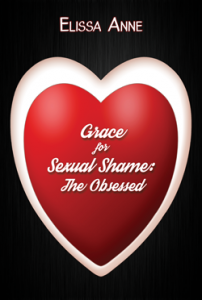I have wanted to write a book about sex for years but it has taken me quite a while to muster the courage–and equally as long to actually engage in sexual practises. I have never considered myself to be sexually normal. Not that there is a normal, but  experiencing sexual abuse definitely has unique effects on a person’s sexual development.
experiencing sexual abuse definitely has unique effects on a person’s sexual development.
I grew up avoiding all things sexual, while simultaneously craving the thing I lacked. In fact, I spent a considerable amount of time and energy crying–grieving–about my sexuality. Whether I was crying about my singleness, or crying because I felt guilty for masturbating, or crying because I was pushing my own sexual boundaries, or crying because I wanted to have sex but wasn’t married and couldn’t decide whether or not to simply throw caution to the wind, or crying over past sexual trauma; my sexuality, without a doubt, has been and may still be one of the most difficult and painful areas of my personhood.
Part of my inclination to write about sex comes from my desire to heal the wounds of my own past and equally passionate is my desire to influence others who may suffer with similar wounds, difficulties, fears, traumas, sexual secrets and potentially harmful restrictions. I struggled with extreme guilt over masturbation in my twenties and I want to help other people to at least ponder the idea that self-masturbation is a healthy expression of ones sexuality. I’ve experienced disappointments in my married sex-life and want to encourage people to talk about sexual issues honestly and openly. My hope is that through honest conversation, we may begin to heal our collective sexuality sooner rather than later.
I feel strongly that it is time for the church to start preaching grace above abstinence. When statistics tell us that more than 90% of people, Christian and non-Christian alike, have sex before marriage in countries like America and Australia, we are kidding ourselves if we think that vamping up the abstinence message is going to stop people from having premarital sex. We need better sex education about contraception and even about abortion. Also, the church desperately needs to re-think its hate-the-sin-love-the-sinner approach to LGBTIQ people. The church is not capable of loving sinners if it simultaneously shames, judges, criticises, condemns, avoids and slanders their sin. An article of mine was published in the news about this recently.
If I may be so bold: I believe that the Spirit of Love has anointed me to proclaim freedom from condemnation, guilt and shame, to heal broken-hearts, to free people from oppressive social norms, to bestow the halo of God’s grace and cast out the spirit of heaviness, that we may all rejoice in the glorious love of our saviour Jesus Christ. In a nutshell, I feel compelled to preach grace for sexual shame.
This book equates to about 110 A4 pages (58,000 words) exploring and challenging current Christian and religious norms around various sexual topics. It was written over the period of approximately 18 months mostly in 2015-2016. When I began writing it, I was an intercourse-virgin. When I finished writing it, I’d been married more than a year. You will note this progression within the book and I have included some dates or references to when certain sections were written, to try and give the reader a clearer picture of where I was at in this progression. Also, I am Australian and my husband, JD, is American.
It is an explicit book and should only be read by those under age 18 if they have parental permission and guidance. I know that some people will take offence to the explicit nature of the book, and for that I can only say that I had to follow my heart and write the words I have longed to hear but never read from other sources.
I pray that this book particularly transforms and reforms the body of Christ’s approach to sex and that it challenges every reader in healthy ways. It is available here.
I invite your feedback, discussion and confession (if you so desire) at mailto:elissaanne.author@gmail.com and I ask that if you quote me on Facebook, you reference my website. Blogs that have been included in this book can be found and re-shared from here.
